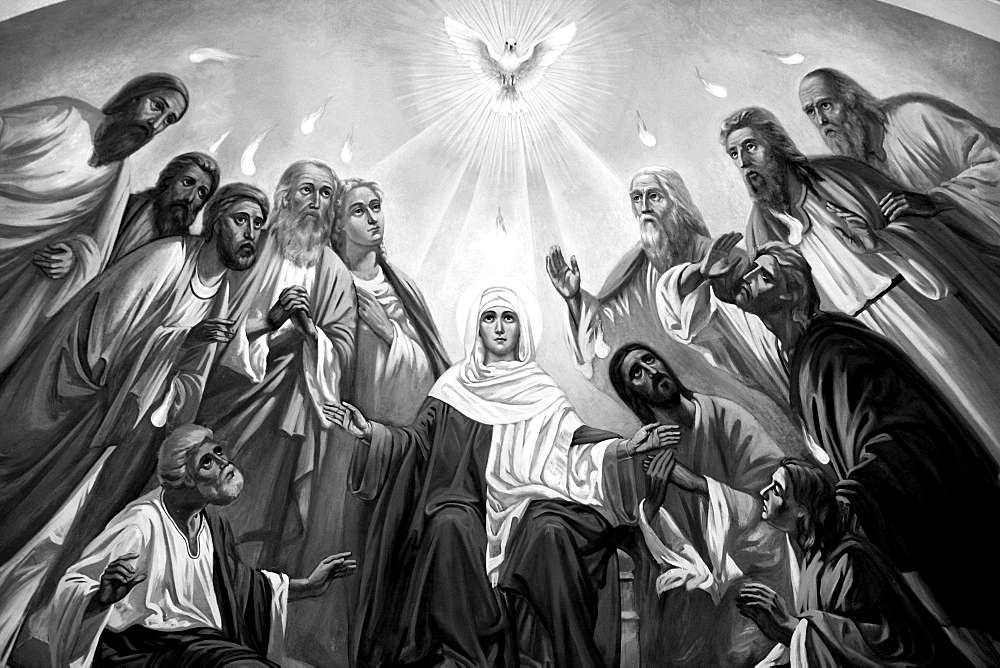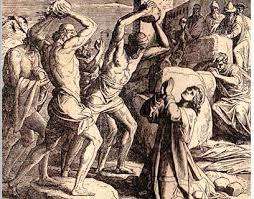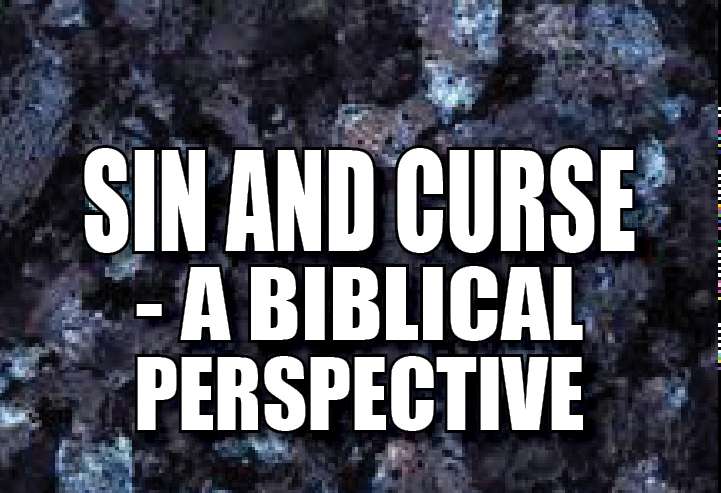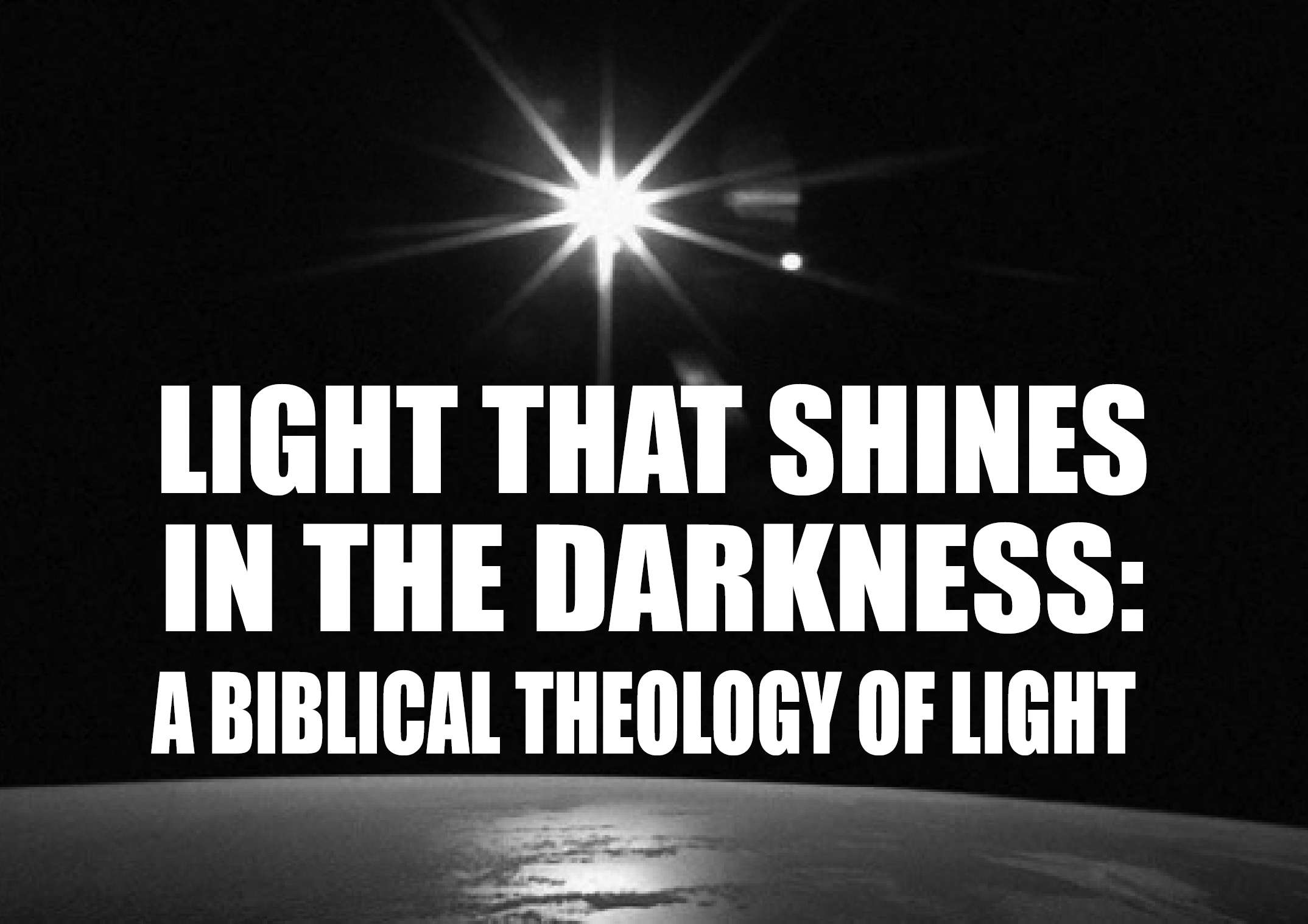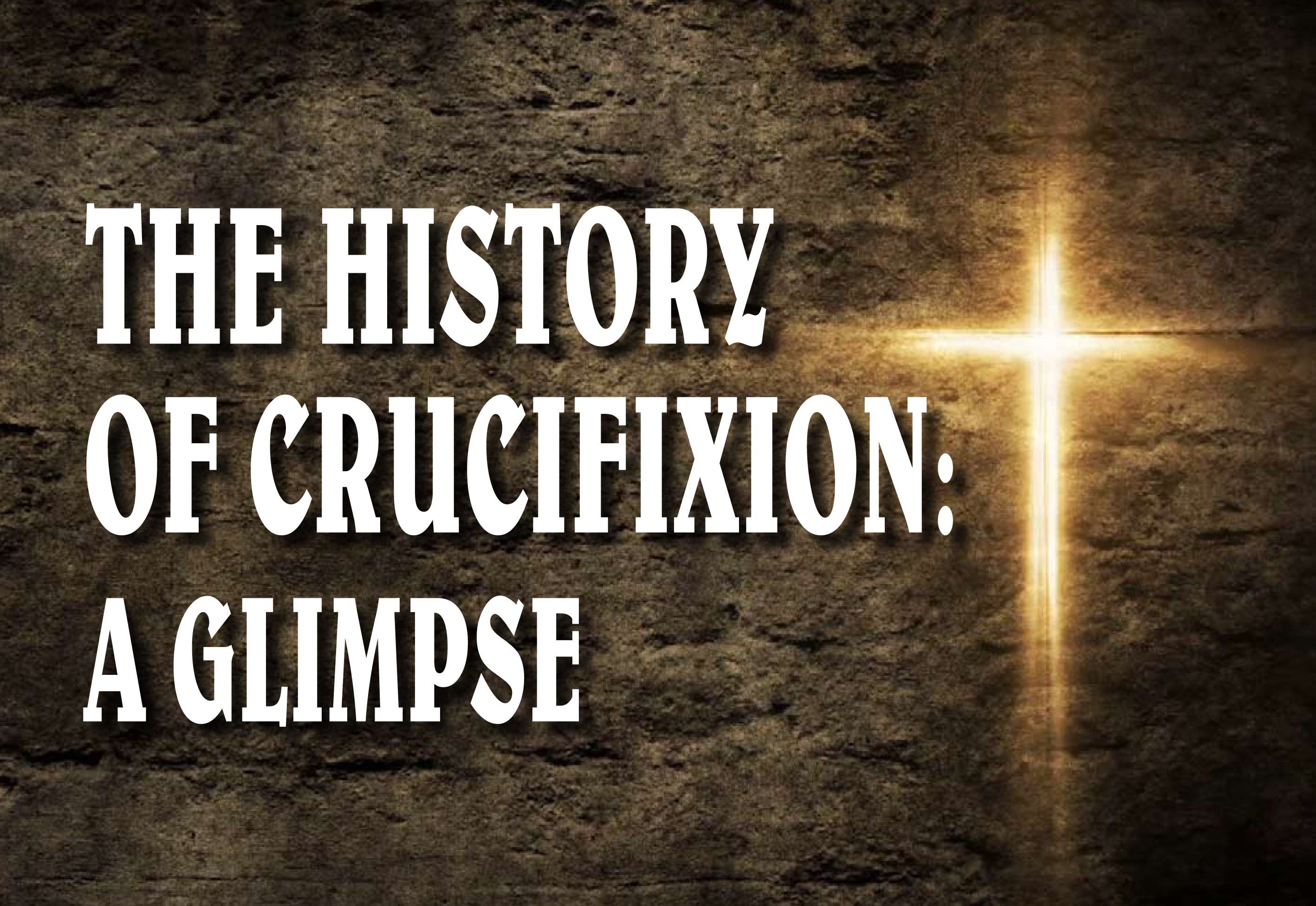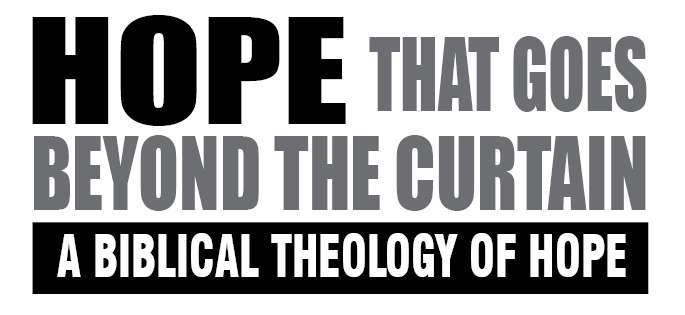

Hope that goes Beyond the Curtain: A Biblical Theology of Hope
Dr. Shaibu Abraham
The Bible as a whole provides true hope to disillusioned humanity by revealing how God, out of love, will renew all creation following the disruption caused by the rebellion of Adam and Eve in the Garden of Eden. While the early chapters of Genesis look back to the first creation to explain the present state of the cosmos, the final chapters of Revelation look forward to the re-creation of a new heaven and a new earth. Throughout the Bible hope is closely associated with God himself and the outworking of his purposes in history.
Of the various terms which express hope or expectancy, the most frequently used and the richest in meaning in New Testament Greek are the noun 'elpis', the verb 'elpizo' and their derivatives. Both words denote the act of hoping and also the idea of the object hoped for. Thus ta elpizomena means the good things hoped for, and elpisthe object of good hope as well as the act of hope. Another word, the noun apokarado kiadenotes a longing, almost impatient expectancy. In several passages in which the hope of the faithful of Israel is expressed through the verb or noun Yahweh is named as the object of hope. "To hope in Yahweh", "to wait for Yahweh" are expressions created by the OT writers. Those Babylonians whose prayers have come down to us never called their gods their "Hope". But an Israelite could pray, "For you are my hope, O Lord God" (Ps. 71: 5). Jeremiah spoke of "Thou hope of Israel" (14: 8; 17: 13).
1. Hope in the Old Testament
In the OT hope is closely related to the character of God. Those who hope in God, trust God and his promises. Because God is the hope of the righteous, they can expect good things from God and wait patiently for his help and deliverance. This patient hope is firmly anchored in the history and narrative of Scripture. The God who has fulfilled his promises to Israel in the past will continue to be faithful in the present and future. Hope that does not place its trust in God is false hope which God will eventually overthrow. Moreover, Yahweh himself is the theological ground of human hope in the OT; for instance, Jeremiah ponders, "This I recall to my mind, Therefore I have hope. Through the Lord's mercies we are not consumed, Because His compassions fail not. They are new every morning; Great is Your faithfulness. 'The Lord is my portion,' says my soul, 'Therefore I hope in Him!'" (Lam. 3:21–26). Thus Yahweh was the object, embodiment and guarantor of his people's hope.
Moreover, while the OT has relatively little to say about life after death, there are indications that those who enjoy a positive relationship with Yahweh in this life will continue to enjoy this experience beyond death. Hope in God in the present is also a hope in God’s future eschatological intervention which will put an end to all earthly distress. This eschatological hope expressed itself as a conviction that all of history was in God’s hands and that God would fulfill his promise to establish David’s throne forever. This aspect of Israel’s hope gave rise to the messianic expectation of the OT, apocalyptic literature and the idea of the resurrection of the dead. The messianic age was seen as a time when Israel’s hope in God’s promises would be fulfilled, the kingdom of God would be given to the saints and the hopes of the ungodly would be destroyed by God’s judgment. For this reason, confidence in Yahweh provides hope for every OT believer regardless of personal circumstances.
2. Hope in the New Testament
As we turn to the New Testament, the idea of hope takes wider and deeper theological nuances and meanings. The Christian hope is not merely a vague idea of trusting for life on earth or safety of our spirits after death but it is the definite idea of coming of a future where our physical bodies also will be part of the great event. Scripture recognizes that the human body is weak, weary, and sick because of the fall. But it also recognizes that because of Christ, our bodies, not just our souls, will be raised in glory, never again to experience suffering, sickness, or death.When Christ redeemed us he did not just redeem our spirits, he redeemed us as whole persons, and this includes the redemption of our bodies.Therefore the application of Christ’s work of redemption to us will not be complete until our bodies are entirely set free from the effects of the fall and brought to that state of perfection for which God created them. In fact, the redemption of our bodies will only occur when Christ returns and raises our bodies from the dead. But at this present time, Paul says that we wait for “the redemption of our bodies,” and then adds, “for in this hope we were saved” (Rom. 8:23–24). The stage in the application of redemption when we receive resurrection bodies is called glorification. Referring to that future day Paul says that we will be “glorified with him” (Rom. 8:17).The day we are glorified will be a day of great victory because on that day the last enemy, death, will be destroyed, just as Scripture predicts: “For he must reign until hehas put all his enemies under his feet. The last enemy to be destroyed is death” (1 Cor.15:25–26). In the context of a discussion of the resurrection of our bodies when Christ returns, Paul says, “Then shall come to pass the saying that is written: ‘Death is swallowed up in victory.’ O death, where is your victory? O death, where is your sting?” (1 Cor. 15:54–55). When our bodies are raised from the dead we will experience complete victory over the death that came as a result of the fall of Adam and Eve. Then our redemption will be complete.
3. The Guarantee of Our Hope
How does the hope of a believer come true? What is the guarantee our hope? Paul says, “We ourselves, who have the first fruits of the Spirit, groan inwardly as we wait for adoption as sons, the redemption of our bodies” (Rom. 8:23).This, the final stage in the process of salvation, is an inheritance guaranteed by the Holy Spirit: “In [Christ] you also, who have heard the word of truth, the gospel of your salvation, and have believed in him, we are sealed with the promised Holy Spirit, which is the guarantee of our inheritance until we acquire possession of it, to the praise of his glory”(Eph. 1: 13-14). Peter also spoke of an inheritance: “Blessed be the God and Father of our Lord Jesus Christ! By his great mercy we have been born anew to a living hope through the resurrection of Jesus Christ from the dead, and to an inheritance which is imperishable, undefiled, and unfading, kept in heaven for you, who by Gods power are guarded through faith for a salvation ready to be revealed in the last time” (1 Peter 1:3-5). Furthermore, the New Testament promises salvation from the wrath of God at the time of judgment: “Since, therefore, we are now justified by his blood, much more shall we be saved by him from the wrath of God. For if while we were enemies we were reconciled to God by the death of his Son, much more, now that we are reconciled, shall we be saved by his life” (Rom. 59-10). In short, the believer can look forward to a much greater experience, an experience variously characterized as adoption by God, redemption of the body, an undefiled inheritance guaranteed by the Spirit, salvation from God’s wrath. Several biblical references point to a future completion of the process begun in regeneration and continued in sanctification.One of the most direct of these statements is Colossians 1:22: “he has now reconciled [you] in his body of flesh by his death, in order to present you holy and blameless and irreproachable before him.”
4. The Great Hope of Resurrection
It is not only our spirits but our physical bodies also will be glorified. This will take place in connection with the resurrection of a believer. At the second coming of Christ, all who have died in the Lord will be raised; and they, together with the surviving believers, will be transformed. Paul notes that the great change which will take place at the time of the coming of Christ will be instantaneous: “Lo! I tell you a mystery. We shall not all sleep, but we shall all be changed, in a moment, in the twinkling of an eye, at the last trumpet. For the trumpet will sound, and the dead will be raised imperishable, and we shall be changed’ (w. 51-52).
5. The Nature of Resurrection Bodies
If Christ will raise our bodies from the dead when he returns, and if our bodies will be like his resurrection body (1 Cor. 15:20, 23, 49; Phil. 3:21), then what will our resurrection bodies be like? Using the example of sowing a seed in the ground and growing it into something much more wonderful, Paul explains in details what our resurrection bodies will be like: What is sown is perishable, what is raised is imperishable. It is sown in dishonor, it is raised in glory. It is sown in weakness, it is raised in power. It is sown a physical body, it is raised a spiritual body... Just as we have borne the image of the man of dust, we shall also bear the image of the man of heaven (1 Cor. 15:42–44, 49). The fact that our new bodies will be “imperishable” means that they will not wear out or grow old or ever be subject to any kind of sickness or disease. They will be completely healthy and strong forever. Moreover, since the gradual process of agingis part of the process by which our bodies now are subject to “corruption,” it is natural that our resurrection bodies will have no sign of aging, but will have the characteristics of youthful but mature manhood or womanhood forever.There will be no evidence of disease or injury, for all will be made perfect. In these resurrection bodies we will clearly see humanity as God intended it to be.
Paul also says our bodies will be raised “in glory.” When this term is contrasted with “dishonor,” there is a suggestion of the beauty or the attractiveness of appearance that our bodies will have. They will no longer be “dishonorable” or unattractive, but will look “glorious” in their beauty. Moreover, because the word“glory” is so frequently used in Scripture of the bright shining radiance that surrounds the presence of God himself, this term suggests that there will also be a kind of brightness or radiance surrounding our bodies that will be an appropriate outward evidence of the position of exaltation and rule over all creation that God has given tous. This is also suggested in Matthew 13:43, where Jesus says, “Then the righteous will shine like the sun in the kingdom of their Father.” Similarly, we read in Daniel’s vision, “And those who are wise shall shine like the brightness of the firmament; and those who turn many to righteousness, like the stars forever and ever” (Dan. 12:3). In a much greater way, the bright light that shone from Jesus at the transfiguration (Matt. 17:2), together with the fact that we will bear the image of Christ and be like him (1 Cor. 15:49), combine to suggest that there will actually be a visible brightness or radiance that surrounds us when we are in our resurrection bodies.Our bodies will also be raised “in power” (1 Cor. 15:43). This is in contrast to the“weakness” which we see in our bodies now. Our resurrection bodies will not only be free from disease and aging, they will also be given fullness of strength and power.
Finally, Paul says that the body is raised a “spiritual body” (1 Cor. 15:44). In the Pauline epistles, the word “spiritual” seldom means“non physical” but rather “consistent with the character and activity of the Holy Spirit”.“It is sown a natural body subject to the characteristics and desires of this age, and governed by its own sinful will, but it is raised a spiritual body, completely subject to the will of the Holy Spirit and responsive to the Holy Spirit’s guidance.” Such a body is not at all “non physical,” but it is a physical body raised to the degree of perfection for which God originally intended it. In conclusion, when Christ returns he will give us new resurrection bodies to be like his resurrection body. “When he appears we shall be like him” (1 John 3:2; cf. 1 Cor. 15:49; also Rom. 8:29).
6. The Renewal of the Creation
Finally, we should note the relationship between the believer’s glorification and the renewal of the creation. Because man is part of the creation, his sin and fall brought certain consequences to it as well as to himself (Gen. 3:14-19). Creation is presently in subjection to futility (Rom.8:18-25). Yet Paul tells us that “the creation itself will be set free from its bondage to decay and obtain the glorious liberty of the children of God”(v. 21). The nature of the transformation which is to take place is stated more specifically in Revelation 21: l-2: “Then I saw a new heaven and a new earth; for the first heaven and the first earth had passed away, and the sea was no more. And I saw the holy city, new Jerusalem, coming down out of heaven from God, prepared as a bride adorned for her husband.” At that time God will declare, “Behold, I make all things new”(v.5). Man’s original dwelling was in the paradisaical setting of the Garden of Eden; his final dwelling will also be in a perfect setting-the new Jerusalem. Part of the glorification of man will be the provision of a perfect environment in which to dwell.





